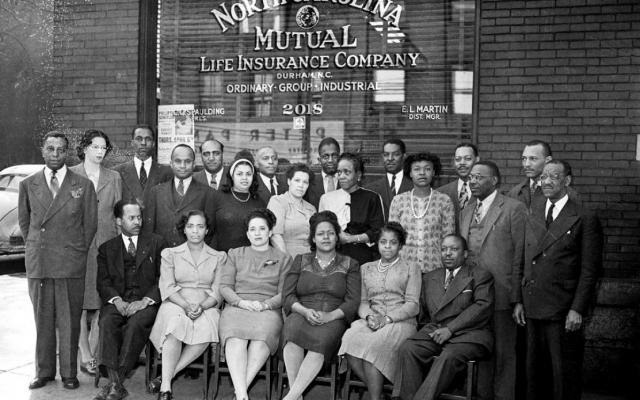
The History and Legacy of Black Entrepreneurship in the United States speaker series provides the Keller Center community an opportunity to learn from the country’s most prominent academic scholars.
Join us for a roundtable as we gather our spring cohort of speakers. Attend this discussion to understand how these leaders weave together their research and scholarship to help build an understanding of Black entrepreneurship in America.
About the Moderator
Ihsan Beezer is a PhD student in Organization Management at Rutgers Business School. He is also affiliated with The Rutgers Advanced Institute for the Study of Entrepreneurship and Development (RAISED). His research focuses on urban and minority entrepreneurship. He holds a B.A. in Economics from the University of Maryland, College Park and M.S. in Management from the Kenan-Flagler Business School of the University of North Carolina at Chapel Hill.
About the Panelists
Dr. Juliet E. K. Walker is a professor of history at the University of Texas at Austin, where she is also the founding director of the Center of Black Business History, Entrepreneurship, and Technology. Her scholarship has provided the foundation for recognizing Black business history as a subfield in African American history. She is author of the first comprehensive book on Black business history, The History of Black Business in America: Capitalism, Race, Entrepreneurship (1998) and Free Frank: A Black Pioneer on the Antebellum Frontier (1983) detailing entrepreneurial activities of slave-born Frank (1777–1854). Free Frank is Professor Walker's born enslaved great-great grandfather whose business activities, first as an enslaved person, and then after purchasing his freedom in 1819, would eventually buy a total of 16 family members from slavery from profits made from his business enterprises on the Kentucky and Illinois frontiers. Free Frank was the subject of Professor Walker's doctoral dissertation at the University of Chicago, where she studied under the eminent scholar historian Dr. John Hope Franklin.
Dr. Christine Kinealy is a Professor of History and Founding Director of Ireland's Great Hunger Institute at Quinnipiac University. She is a graduate of Trinity College Dublin, where she completed her doctorate on the introduction of the Poor Law to Ireland. She then worked in educational and research institutes in Dublin, Belfast and Liverpool. She has published extensively on the impact of the Great Irish Famine and has lectured on the relationship between poverty and famine in India, Spain, Canada, France, Finland and New Zealand. She also has spoken to invited audiences in the British Parliament and in the U.S. Congress.
Dr. Martin Ruef is the Jack and Pamela Egan Distinguished Professor of Entrepreneurship at Duke University. His research considers the social context of entrepreneurship from both a contemporary and historical perspective. He draws on large-scale surveys of entrepreneurs in the United States to explore processes of team formation, innovation, exchange, and boundary maintenance in nascent business startups. His historical analyses address entrepreneurial activity and constraint during periods of profound institutional change. This work has considered a diverse range of sectors, including the organizational transformation of Southern agriculture and industry after the Civil War, African American entrepreneurship under Jim Crow, the transition of the U.S. healthcare system from professional monopoly to managed care, and the character of entrepreneurship during early mercantile and industrial capitalism.
Dr. John Sibley Butler holds the J. Marion West Chair for Constructive Capitalism in the Graduate School of Business, Department of Management at the University of Texas at Austin. He is a professor in the Management Department and holds a joint appointment in Organizational Behavior in the College of Liberal Arts, where he holds the Darrell K. Royal Regents Professorship in Ethics and American Society (Sociology). His research is in the areas of Organizational Behavior and Entrepreneurship/New Ventures. His research appears in professional journals and books. He is the Sam Barshop Fellow at The IC2 Institute, an organization dedicated to the creation of new ventures throughout the world. Professor Butler has been involved as a founder of Glofish and Nuclien.
Who can attend?
Open to the public and the campus community.
Contributions to and/or sponsorship of any event does not constitute departmental or institutional endorsement of the specific program, speakers or views presented.